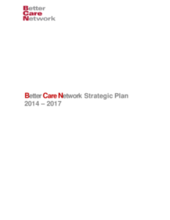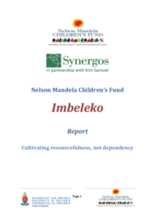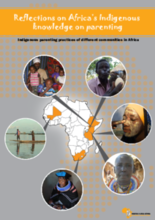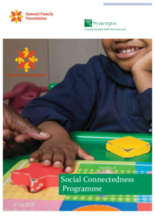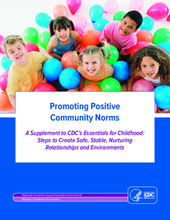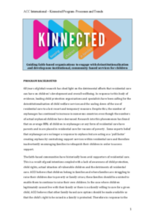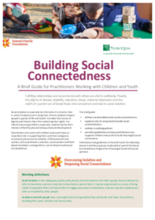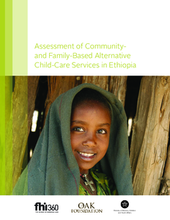Displaying 131 - 140 of 312
In 2013, Better Care Network (BCN) initiated an important process of developing a new Strategic Plan identifying the main strategic focus for its work over the next four years (2014-2017). The plan is based on an analysis of BCN’s achievements to date, the strategic areas in which BCN can have most impact in the future by working with key actors to strengthen the response to children without adequate family care.
Infant Mental Health Journal has published an important Special Issue on Global Research, Practice, and Policy Issues in the Care of Infants and Young Children at Risk. This article documents an initiative to establish a replicable professional model that would direct the child welfare system in the Nizhny Novgorod Region away from institutional care and toward services for young children and their families that reduce the risk of institutionalization.
The purpose of the ‘Imbeleko and social connectedness’ project was to conduct a cross-sectional study in order to explore and describe indigenous ways of care and support to inform policy and intervention.
This publication, produced by the Parenting in Africa Network (PAN), highlights the skillful parenting practices of several pastoral communities in Africa.
This report describes the Social Connectedness Programme and the three strands of research that inform it. The report defines social connectedness and social isolation and explains the benefits of social connectedness.
This guide serves as a supplement to the United States CDC guide “Essentials for Childhood: Steps to Create Safe, Stable, Nurturing Relationships and Environments.” It provides guidance on creating a context for increasing safe, stable, nurturing relationships and environments for children and families by promoting positive community norms.
The Kinnected program, developed by the Australian Christian Churches International (ACCI), is working toward the reduction of use of residential care of children and aims to assist children within the context of their families. This document provides an outline of the program and an overview of the lessons learnt.
This brief guide: defines social isolation and social connectedness; explains why it is important to build social connectedness; outlines enabling policies; provides guidelines on how practitioners can support children and youth to build meaningful social connections.
This Handbook aims to provide guidance for Save the Children staff, NGO partners, Community Child Protection Groups and community volunteers in Myanmar in protecting the welfare of children living with extended family members.
This assessment conducted by FHI 360, with support from Ethiopia's Ministry of Women, Youth and Children Affairs (MoWYCA) and the OAK Foundation aimed to generate evidence about formal community and family- based alternative child care services and service providing agencies in Ethiopia, with a particular focus on magnitude, quality and quality-assurance mechanisms.

